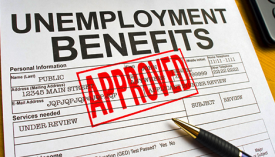In the bustling world of freelancing, safeguarding your income is crucial, especially when unforeseen health issues such as acne—a condition commonly underestimated in its impact—can arise. Disability insurance acts as a financial safety net for freelancers, offering income protection in the event they cannot work due to illness or injury. According to a 2021 survey by Simply Business, around 75% of freelancers do not have disability insurance, highlighting a significant gap in their financial planning. This guide aims to shed light on the importance of disability insurance for freelancers, specifically addressing how conditions like acne may lead to unexpected work interruptions and how the right insurance policy can provide valuable coverage.
Disability insurance for freelancers is designed to replace a portion of your income should you be unable to work due to a disability. For individuals in the freelancing realm, where steady work can already be a challenge, an unexpected health issue such as severe acne can be more than a physical inconvenience—it can hinder your ability to face clients or manage tasks efficiently, impacting your income. "In the world of freelancing, where job security is already a luxury, being prepared for the unexpected with disability insurance is not just wise, it's essential," says financial expert Jordan Lee. It's worth noting that according to a report by the Council for Disability Awareness, over 1 in 4 of today's 20-year-olds can expect to be out of work for at least a year due to a disabling condition before they reach the normal retirement age.
When searching for disability insurance, freelancers should consider policies that cover both short-term and long-term disabilities. Short-term policies generally cover disabilities lasting a few months, while long-term policies kick in for more extended periods of disability. Moreover, it's critical to understand the definitions of disability in your policy—some may cover you if you're unable to perform the tasks of your specific occupation, while others only offer coverage if you're unable to work in any occupation. For conditions like acne, which may not traditionally be considered a disability but can nonetheless severely affect one's work capacity, having a policy that recognizes the breadth of conditions affecting your ability to work is paramount.
Unfortunately, misconceptions about what constitutes a disability can deter freelancers from seeking appropriate coverage. For example, many might not realize that severe cases of acne that impact mental health and work performance qualify under some disability insurance policies. Financial advisor Sarah Chen notes, "Understanding the fine print of your disability insurance policy can make a world of difference. It ensures that you're covered even for conditions that might not seem 'severe' in the traditional sense but significantly impact your ability to earn." In 2022, only 34% of freelancers considered disability insurance a necessary expense, suggesting a lack of awareness about how comprehensive these policies can be.
In conclusion, disability insurance offers an essential layer of financial protection for freelancers, covering a range of conditions—including those like severe acne—that may interrupt one's work and income. As the freelancer economy continues to grow, being proactive in securing disability insurance not only ensures your financial stability but also peace of mind. It's an investment in your business and yourself, recognizing the importance of being prepared for the unexpected. With the right policy, freelancers can safeguard their income, focus on their health, and maintain their livelihood, even in the face of adversity.

